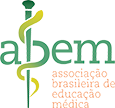Standards
Educational management
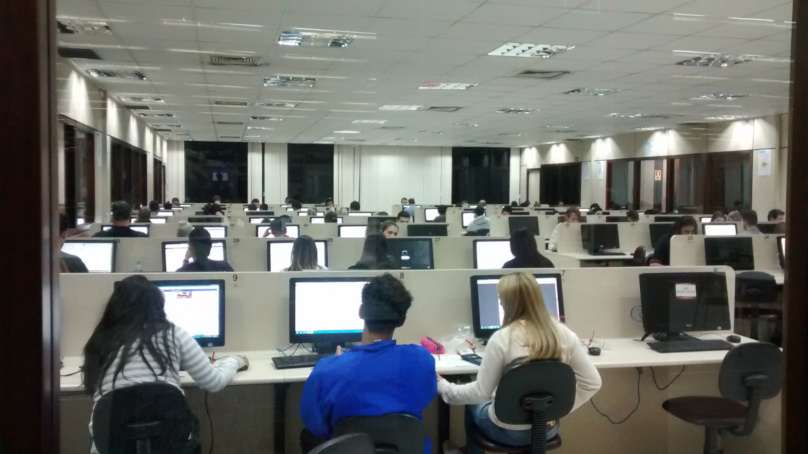
PONTIFÍCIA UNIVERSIDADE CATÓLICA DO PARANÁ
The course adopts a set of measures, mainly derived from resources of the FINEP, to improve the educational environment with essential investments in laboratories, libraries, and classrooms.
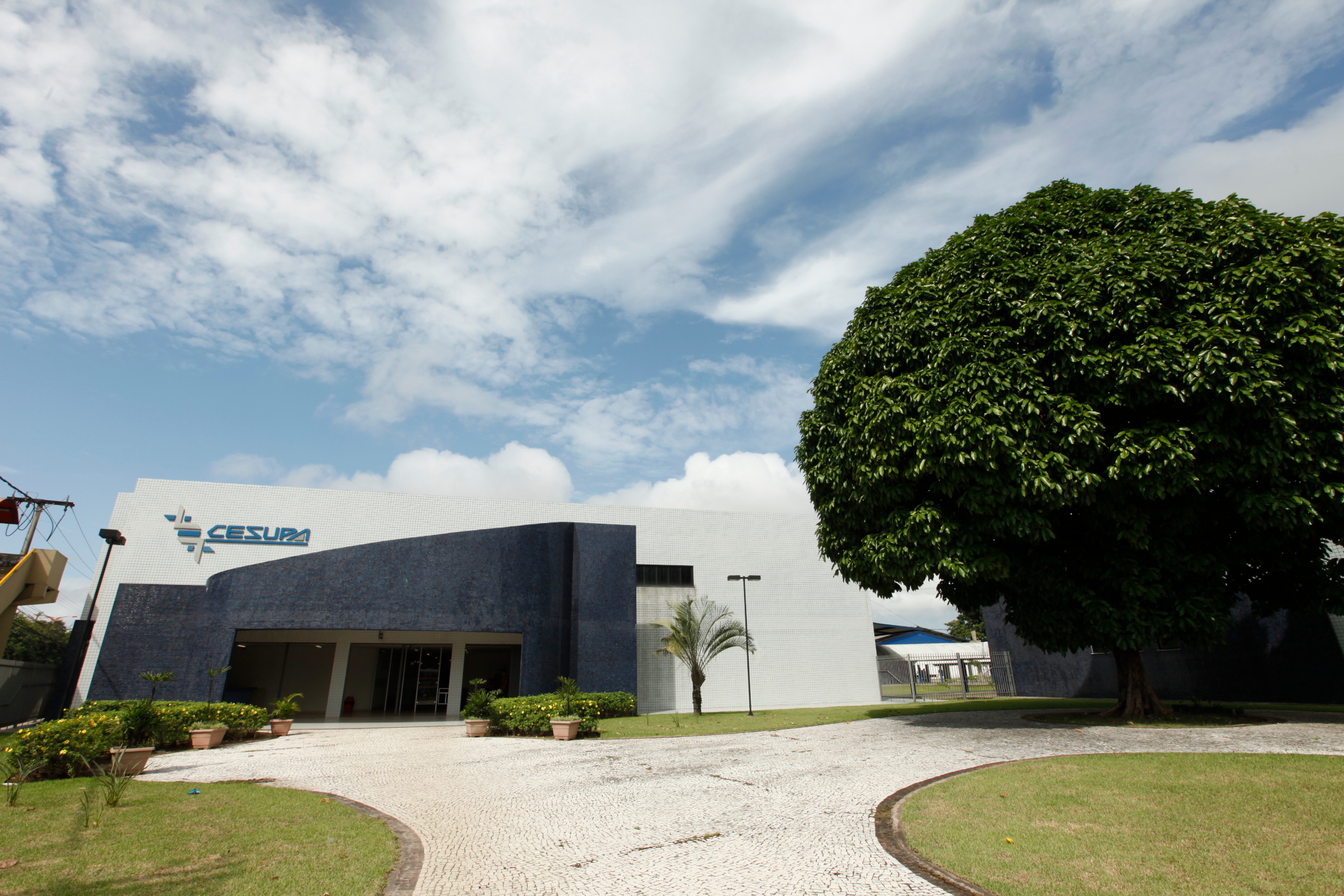
CENTRO UNIVERSITÁRIO DO ESTADO DO PARÁ
The Curriculum committee is active in curriculum planning and implementation, and merits mention for the constant development and improvement of the problems used in the tutorial groups throughout the course. Teacher development, which takes place within the institutional and course framework, is seen by teachers as productive and essential for their professional qualification.
Social Accountability
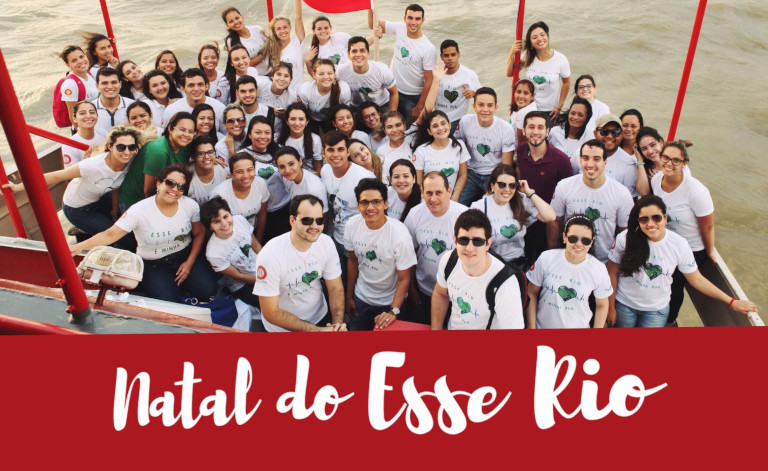
CENTRO UNIVERSITÁRIO DO ESTADO DO PARÁ
The medical school of the Centro Universitário do Estado do Pará offers several projects of university extension, with voluntary participation and stimulated by the regulation of complementary activities. There are numerous projects with a broad diversity of scope to cover the totality of students, with a special mention to the "Projeto Esse Rio é minha Rua" for its impact on student and community development. To fulfill its social function in the Amazon region, the Centro Universitário do Estado do Pará has established partnerships with institutions that foster health care practices facilitating lower income communities’ access to health and education. Students are encouraged to adhere to such practices as learning the value of life and solidarity while adding workload to their curriculum.
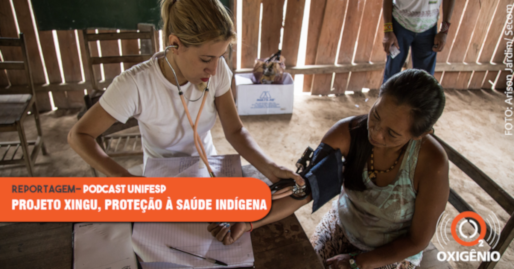
UNIVERSIDADE FEDERAL DE SÃO PAULO
Projeto Xingu – university extension project with curricular activities in an internship during the Family and Community Medicine stage, focused on the care of indigenous health. Created in the 1960s, with actions in Xingu and São Paulo through the Ambulatório do Índio, with headquarters in UNIFESP / Hospital São Paulo, it is a national standard for the care of indigenous health.
LINKAGE BETWEEN EDUCATIONAL PROGRAM AND HEALTH SYSTEM
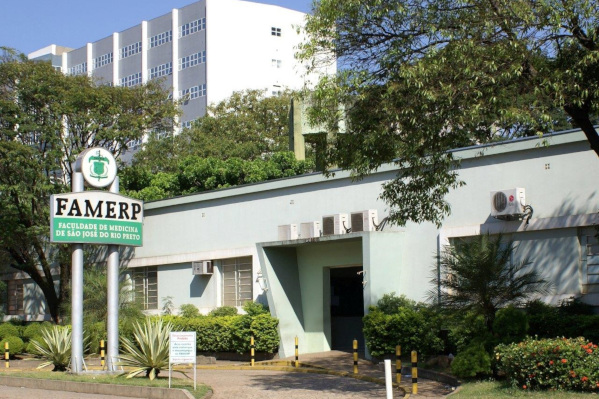
FACULDADE DE MEDICINA DE SÃO JOSÉ DO RIO PRETO
The linkage between the educational program and the health system of the Faculdade de Medicina de São José do Rio Preto is fundamental for the regional development and the health care of the population. The school is part of the "School District / FAMERP" system comprised of the Basic Health Units (UBS) network, an agreement with two emergency care units, and the teaching hospital (owned by the medical school). It is intensively integrated into the regional health services and stands as a reference model for several cities around the school.
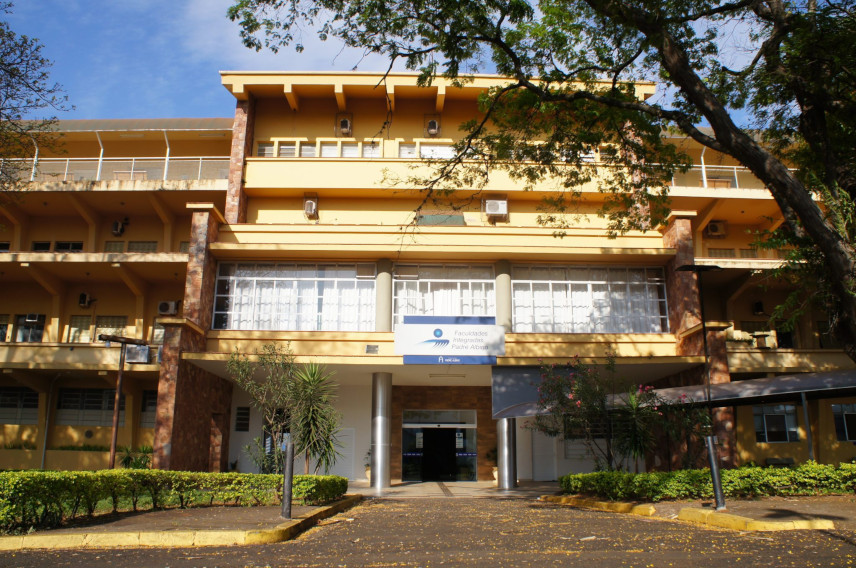
FACULDADES INTEGRADAS PADRE ALBINO
The School of Medicine of the Faculdades Integradas Padre Albino carries out the linkage between the educational program and the health system by providing health care in the primary, secondary, and tertiary care through teaching activities supervised by teachers, as well as through joint projects with the Municipal Health Department. Both managers and users highlight the importance of this institution with a long history in the community, and the essential role it plays in shaping the local health system.

FACULDADE DE MEDICINA DE PETRÓPOLIS
The model of linkage between educational program and health system is one of the strengths of the Faculdade de Medicina de Petrópolis (FMP). The FMP's relations with the Secretariat of Health are mutually beneficial and complementary, with joint planning of activities and many training opportunities for the Secretariat staff. The institutional’s purposeful intention of investing in health units to supplement the public network is clear evidence of its commitment to public health.
INSTITUTIONAL SELF-EVALUATION
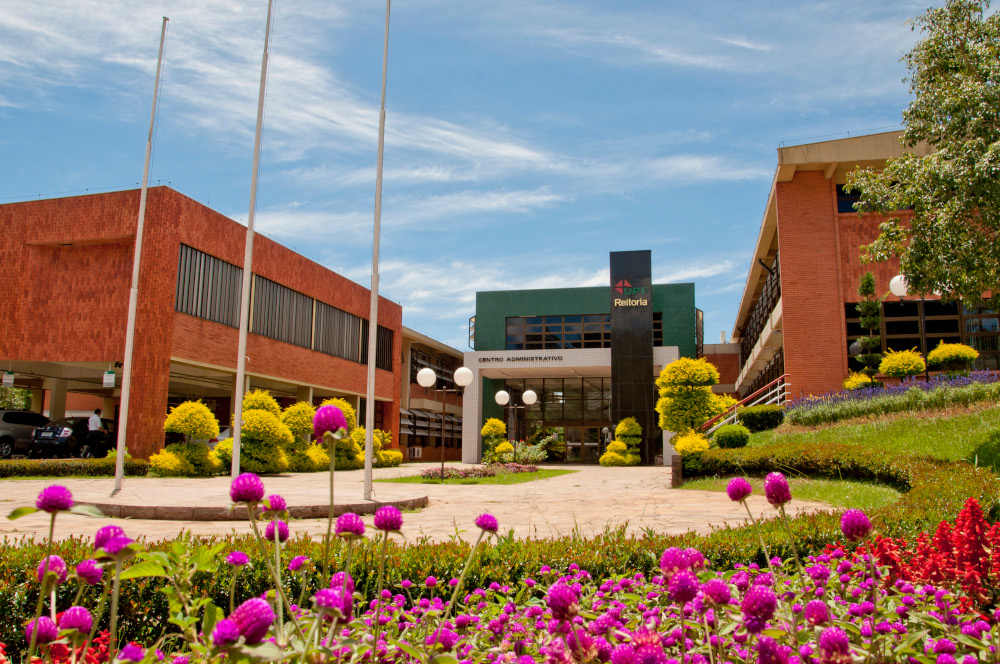
UNIVERSIDADE DE PASSO FUNDO
he Institution's self-evaluation program, proposed by the Comissão Própria de Avaliação (CPA), is entitled "Self-evaluation program: in pursuit of excellence." The self-evaluation process is part of the university community where education is conceived as a public service including values of citizenship, solidarity, and social responsibility. The CPA employs a six-month evaluation instrument which is answered on a voluntary basis by students and teachers and includes evaluation of the students, the didactic-pedagogical practices of the teachers, the institution's infrastructure, and the library (regarding its collection and infrastructure). Also, the students answer another specific evaluation instrument containing 59 questions. The instrument includes questions regarding several aspects of the school, coordination, and the conditions and opportunities for continuing education offered by the institution. Awareness and motivational campaigns are implemented to encourage student and teacher participation in the self-assessment process. The students are surprised by the teachers as one day, during the semester, they are randomly divided into small groups and receive pens and flipcharts to evaluate the course or their current activity. Their evaluation occurs in an informal and relaxed environment. The resulting evaluative material becomes part of an easy-to-visualize collection informing course coordinators and management.
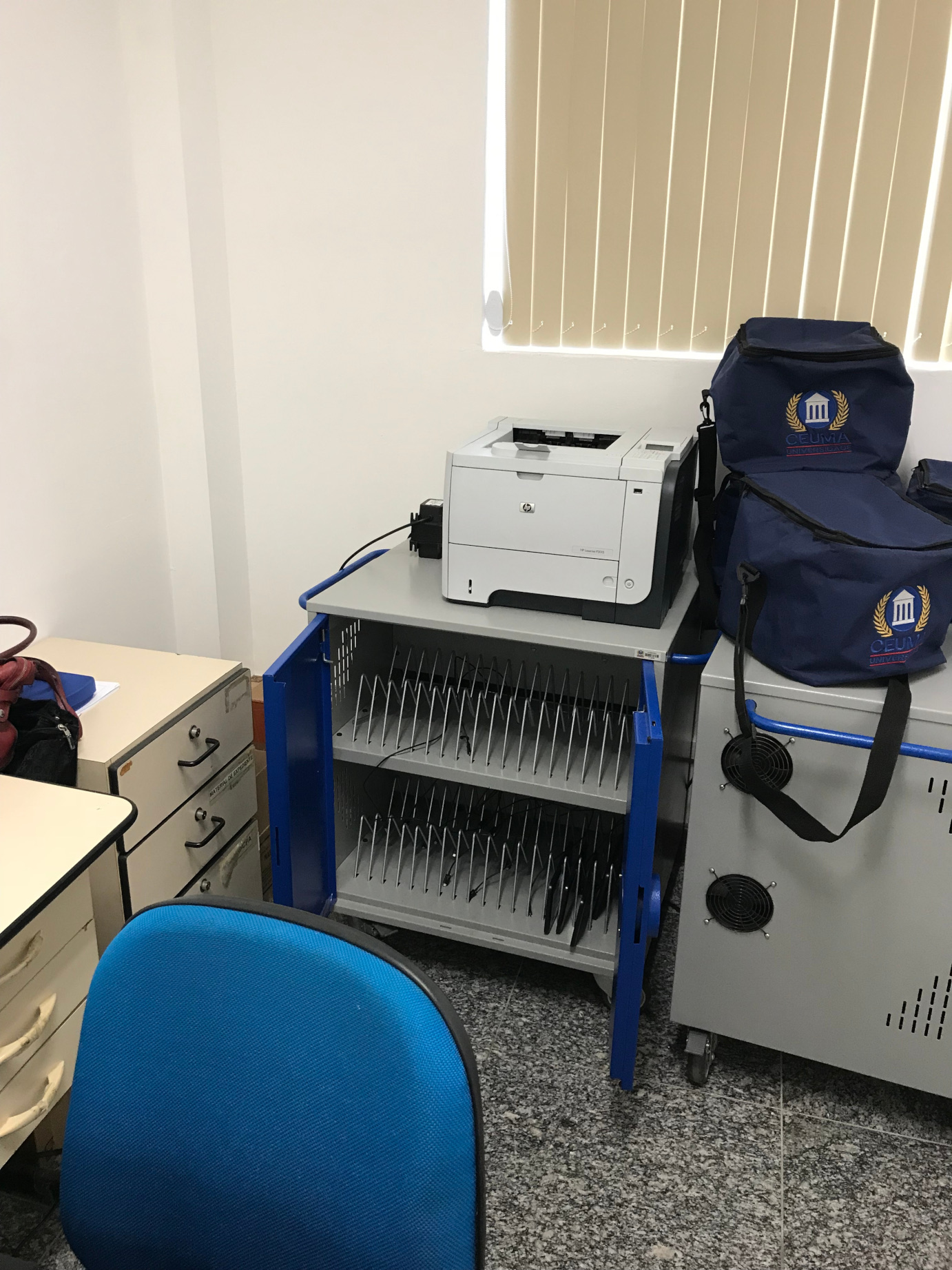
CENTRO UNIVERSITÁRIO DO MARANHÃO
The institutional self-assessment project of CEUMA relies on the participation of the entire social body of the insititution involving managers, teachers, students, graduates, technicians, and the community in general. At all stages of the self-assessment process, it is possible to verify the regular and systematic participation of the academic community. Self-evaluation is carried out every six months employing creative and active strategies, and the use of tablets has been effective in increasing the participation of the social body in this process.
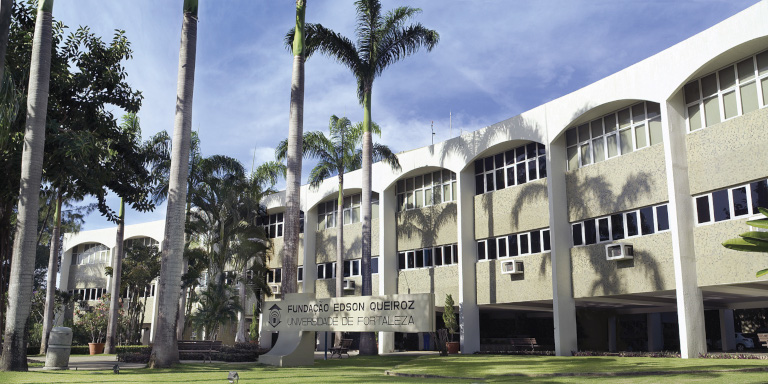
UNIVERSIDADE DE FORTALEZA
The evaluation and monitoring process of the institutional development plan (IDP) of the University of Fortaleza is comprised of four strategic areas of the institution: teaching, research, extension, and management, and is executed through a permanent process of evaluation of the academic-administrative performance of the institution. The Internal Institutional Evaluation Board (COAVI) implements and disseminates the institutional self-assessments, in addition to monitoring the actions arising from the self-assessment process within the University; accompanies the implementation of the IDP; provides information to the Minister of Education; and promotes events related to the subject of internal evaluation with the support of the Internal Institutional Evaluation Program (PROAVI).
Innovative Educational Strategies

UNIVERSIDADE FEDERAL DE UBERLÂNDIA
Use of psychodrama as a pedagogical strategy for the development of compassion, empathy, and expressiveness.
Simulation
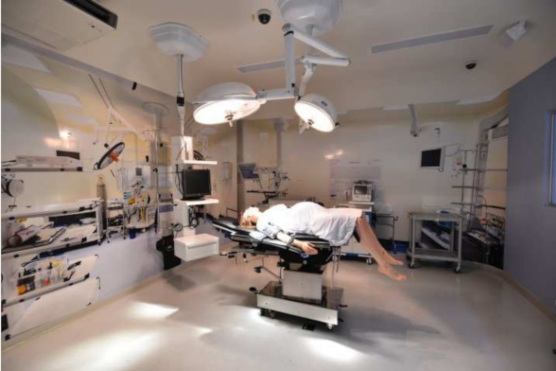
PONTIFÍCIA UNIVERSIDADE CATÓLICA DO PARANÁ
The medical school of the Pontifícia Universidade Católica do Paraná has a state-of-the-art Clinical Simulation Laboratory well equipped to develop students' skills. The intense use of this equipment during the medical school program is emphasized here, aiming at the substantial training of the students and focusing on the safety of the patient.
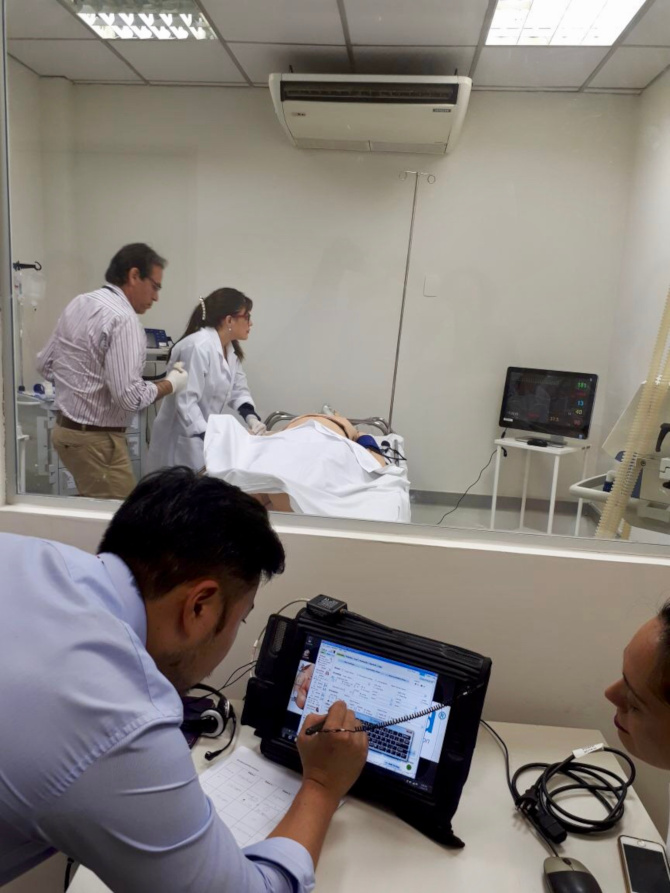
UNIVERSIDADE DE FORTALEZA
The University of Fortaleza has a complete Laboratory of Medical Skills, with a vast arsenal of equipment and simulators which allow the training of students at all stages of the medical school program.
Integration of curriculum Elements
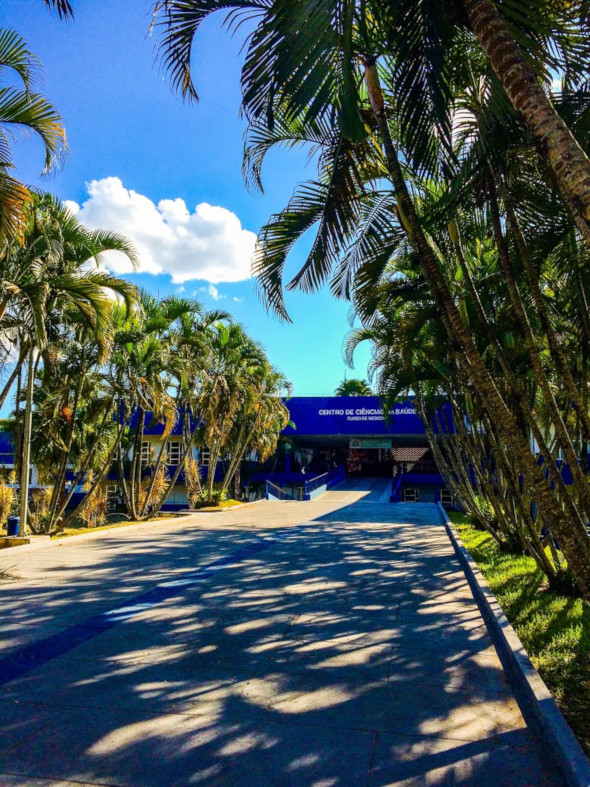
CENTRO UNIVERSITÁRIO DE VOLTA REDONDA - UNIFOA
The curricular design of the UniFOA Pedagogical Project has a unique integration model for a school that does not use Problem Based Learning as an educational approach and is an excellent example of the transition to a non-disciplinary model of curricular organization. The modular division proposes the redefinition of contents of the "classic" disciplines of the medical school curriculum in thematic modules. Organized in such a way, it allows the synchronicity between expository activities, laboratory practices, clinical practices, and community activities around major themes such as, "The senses, perception and movement" (first semester), or "Elementary care in health and prevalent diseases" (sixth semester). Teachers are organized by activities structured in modules, not by disciplines.
Medical Research Activities

UNIVERSIDADE DE PASSO FUNDO
The medical school of the Universidade de Passo Fundo offers students opportunities to experience the scientific method favoring its critical and reflective formation, and preparing them for the valorization and practice of research. It is worth mentioning the current curriculum change making Research Seminars mandatory. Also, the Mostra de Iniciação Científica organized by the students was identified as a strength of the school.
Rural Clerkship
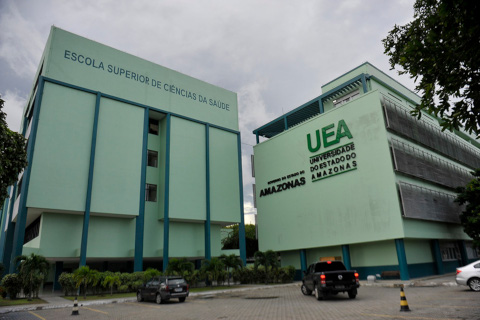
UNIVERSIDADE DO ESTADO DO AMAZONAS
The rural clerkship of the Universidade do Estado do Amazonas is an exciting example of the connection between educational program and health system, linking the high technology coming from Telessaúde (teaching-learning tool and support to professionals in distant and/or difficult access places) to the experience of living the challenging reality of the population of the interior of the Amazon.
Curricular Improvement
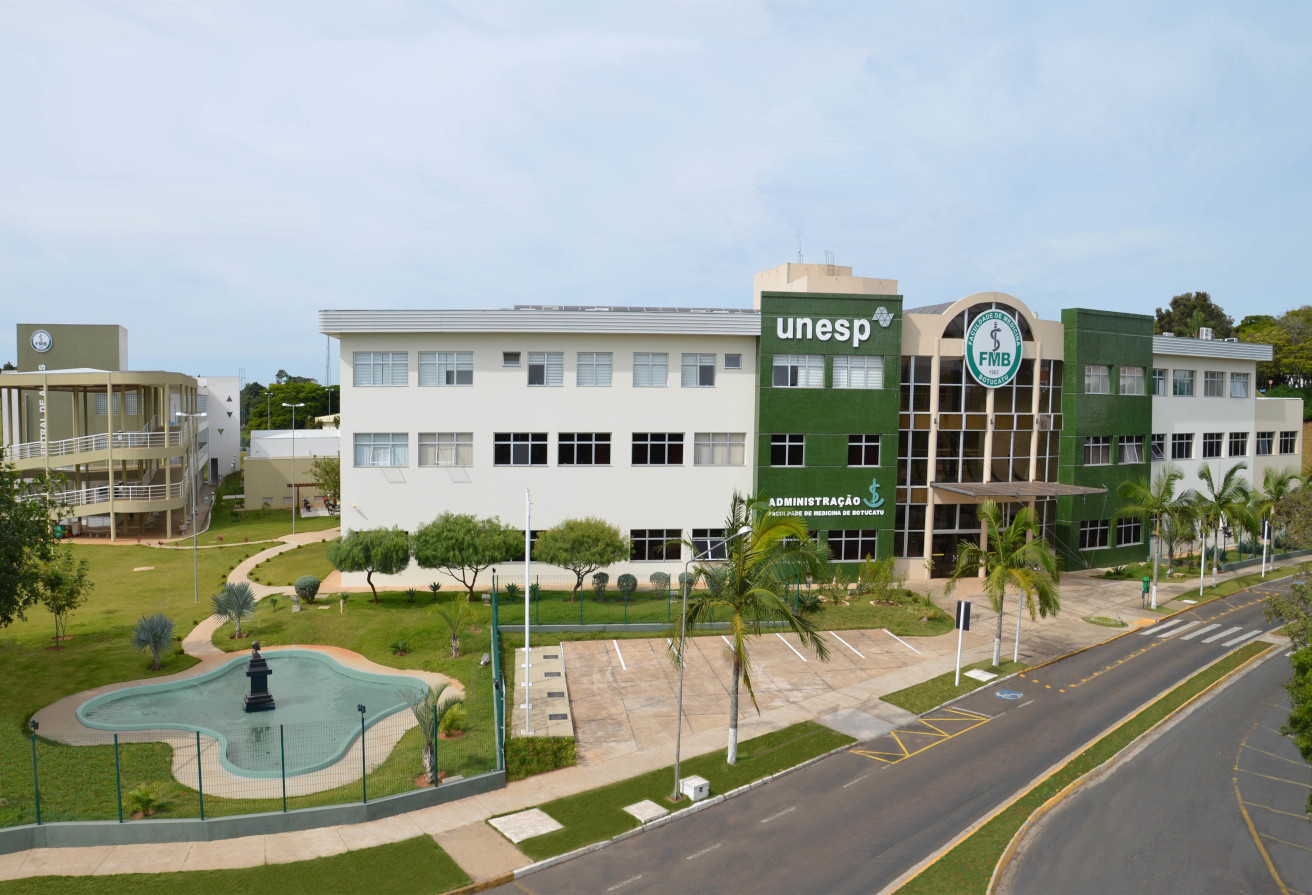
UNIVERSIDADE ESTADUAL PAULISTA (UNESP)
The Universidade Estadual Paulista (UNESP) has been discussing its curriculum model for more than a decade with the broad participation of its social body, culminating in a critical reflection on its pedagogical practices and a strong disposition towards change with the objective of implementing the results of internal and external evaluations.
International certification
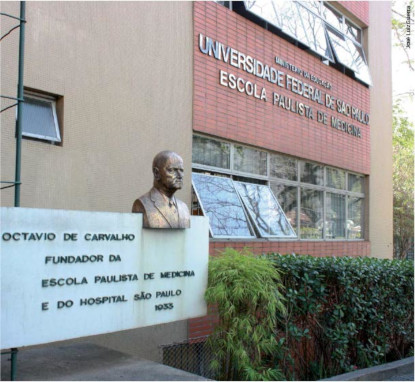
UNIVERSIDADE FEDERAL DE SÃO PAULO
ACLS Certification for Interns Students - during the Emergency training in internship, all students perform Advanced Cardiovascular Life Support (ACLS) and are certified.
Cultural Programs
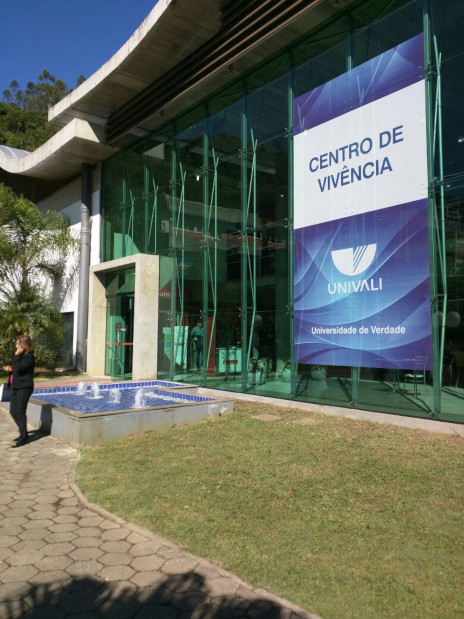
UNIVERSIDADE DO VALE DO ITAJAÍ – UNIVALI
The Universidade do Vale do Itajaí has an extensive cultural program emphasizing the transdisciplinary and cultural formation of its students and the social body of the educational institution. The Art and Culture Sector organizes the UNIVALI Cultural Festival (institutional event held for the university community and its collaborators) in addition to the monthly exhibitions in the Cultural Space. It also produces the weekly program Mix Cultural on Radio UNIVALI, dance groups, and theater. Through the Music Extension classes, the University aims to enable access to musical practices in various instruments, as well as to perform numerous musical presentations with the groups: Children's choir, Adult Choir, and Art in Motion project (University Voice, Instrumental Group and UNIVALI Band).
Faculty Development

ESCOLA BAHIANA DE MEDICINA E SAÚDE PÚBLICA – EBMSP
The Escola Bahiana de Medicina e Saúde Pública has the Institutional Program for Teaching Development - PROIDD - and the Nucleus of Pedagogical Academic Supervision - NUSP, composed of pedagogues and psychopedagogues with experience in medical education. PROIDD relies on professionals with training in health education and, in particular, in medical education, pedagogy, and psychology. It offers undergraduate and postgraduate courses stricto sensu, master's, and doctorate’s in lines of research that enable the development of topics related to medical education and health: teaching and professional development, teaching methodologies in health courses, and technology research in health. PROIDD also plans, executes, and evaluates courses, workshops, and institutional events integrated into the academic calendar, such as the Pedagogical Forums, held annually. As an incentive for teacher participation in the Pedagogical Forums, the teaching prize "Borboleguim de Ouro" was instituted. Borboleguim is a neologism authored by the institution meaning the fusion of the words butterfly and penguin in Portuguese, representing the transformation of the butterfly and the adaptive capacity of the penguin.
Welcome Program
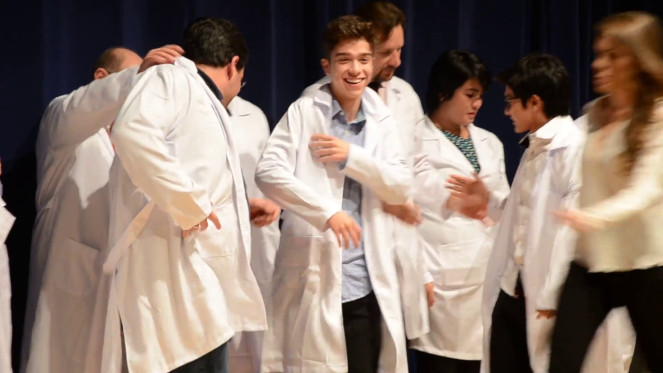
UNIVERSIDADE POSITIVO
There is an ordinance issued by the Rectory of the Universidade Positivo that prohibits violence when welcoming students. The medical school holds the students’ reception week organized by the academic center with the support of the course coordinators. This event involves interactive activities between students and teachers to promote understanding about the school environment and the Pedagogical Project, as well as the professional values of the school. It is worth highlighting the "Cerimônia do Jaleco Branco," which includes students and their relatives.
Student Support Programs
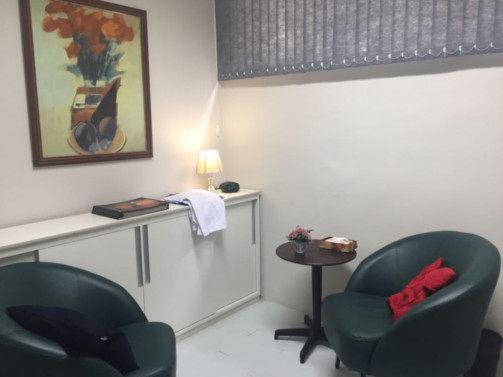
UNIVERSIDADE DE FORTALEZA
The medical school of Universidade de Fortaleza relies on psychological and psychiatric monitoring on its campus. Access to it can occur in three ways: as spontaneous search, at the suggestion of the course manager who receives the request through the tutor, and through the Academic Tutorial Program (PTA).

FACULDADE DE MEDICINA DE SÃO JOSÉ DO RIO PRETO
The Faculdade de Medicina de São José do Rio Preto has a student support plan, conducted by its students’ organization, which has two institutional services:
- CASA (Center for Social Support to the Student), a support program with institutional programs such as food grants, Stay grants, Scholarship grants, and financial aid for transportation to carry out a curricular internship at the Basic Health Units.
- SOPPA (Psychological Counseling Service) offers psychological assistance, assessment, intervention, guidance, and counseling to undergraduate students (medicine and nursing).
Representativeness
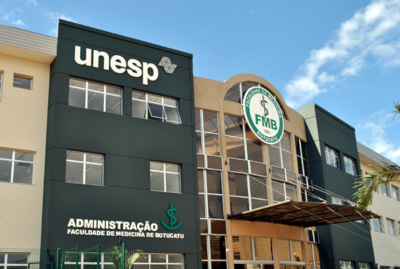
UNIVERSIDADE ESTADUAL PAULISTA (UNESP)
The Centro Acadêmico Pirajá da Silva (CAPS) is integrated into the history and culture of the Faculty of Medicine of Botucatu - UNESP. The Faculty recognizes the CAPS as the maximum body of student representation, considers it a partner in the efforts of curricular change, in the reception of the students, and in several structuring projects of the school. Students are represented in the Municipal Health Council, in the Structuring Teaching Nucleus, and in the Council of the Undergraduate Course, equivalent to the collegiate course.
Selection and Admission Process
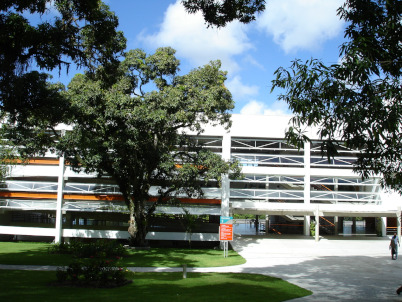
ESCOLA BAHIANA DE MEDICINA E SAÚDE PÚBLICA – EBMSP
The Selective Formative Process (PROSEF) of the Escola Bahiana de Medicina e Saúde Pública includes three obligatory phases:
- Phase 1. Proof of general knowledge
- Phase 2. Experiential
- Phase 3. Proof of specific knowledge
The experiential phase allows the candidate the opportunity to deepen the reflection on their professional choice. This is a unique feature of the selection process in the country.
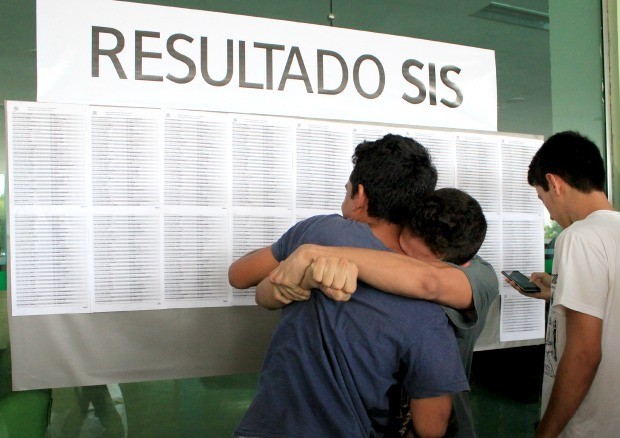
UNIVERSIDADE DO ESTADO DO AMAZONAS
The selection process of the Universidade do Estado do Amazonas has two entrance systems: the Vestibular and the Sistema de Ingresso Seriado (SIS). Half of the total of vacancies is reserved for students who attended at least eight series of Basic Education in any public or private school in a rural municipality of the State of Amazonas. It is an entrance policy that reaffirms the University's social commitment to regional development in the state of Amazonas.
Sustainability
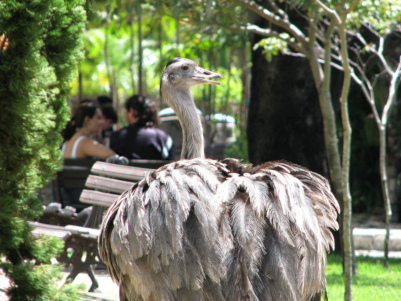
UNIVERSIDADE DE FORTALEZA
The Universidade de Fortaleza has environmental sustainability and improvement policies such as proper separation and disposal of garbage, trimmed grass composting, rainwater reuse, soil waterproofing limitation policy, architectural projects aiming at optimizing natural light and ventilation, and efforts to reduce car use through car-sharing and the use of bicycles.
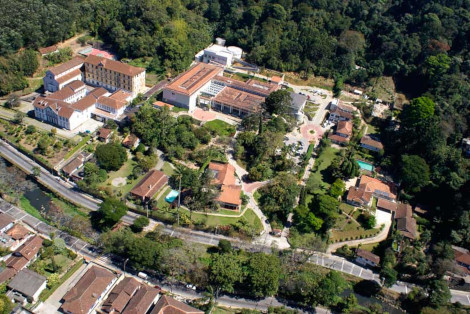
FACULDADE DE MEDICINA DE PETRÓPOLIS
The campus as a whole is a model of architectural environmental sustainability, as well as water reuse and waste recycling because it is part of the Atlantic Forest and is listed as protected by the National Historical and Artistic Heritage Institute.
Diversified Learning Settings
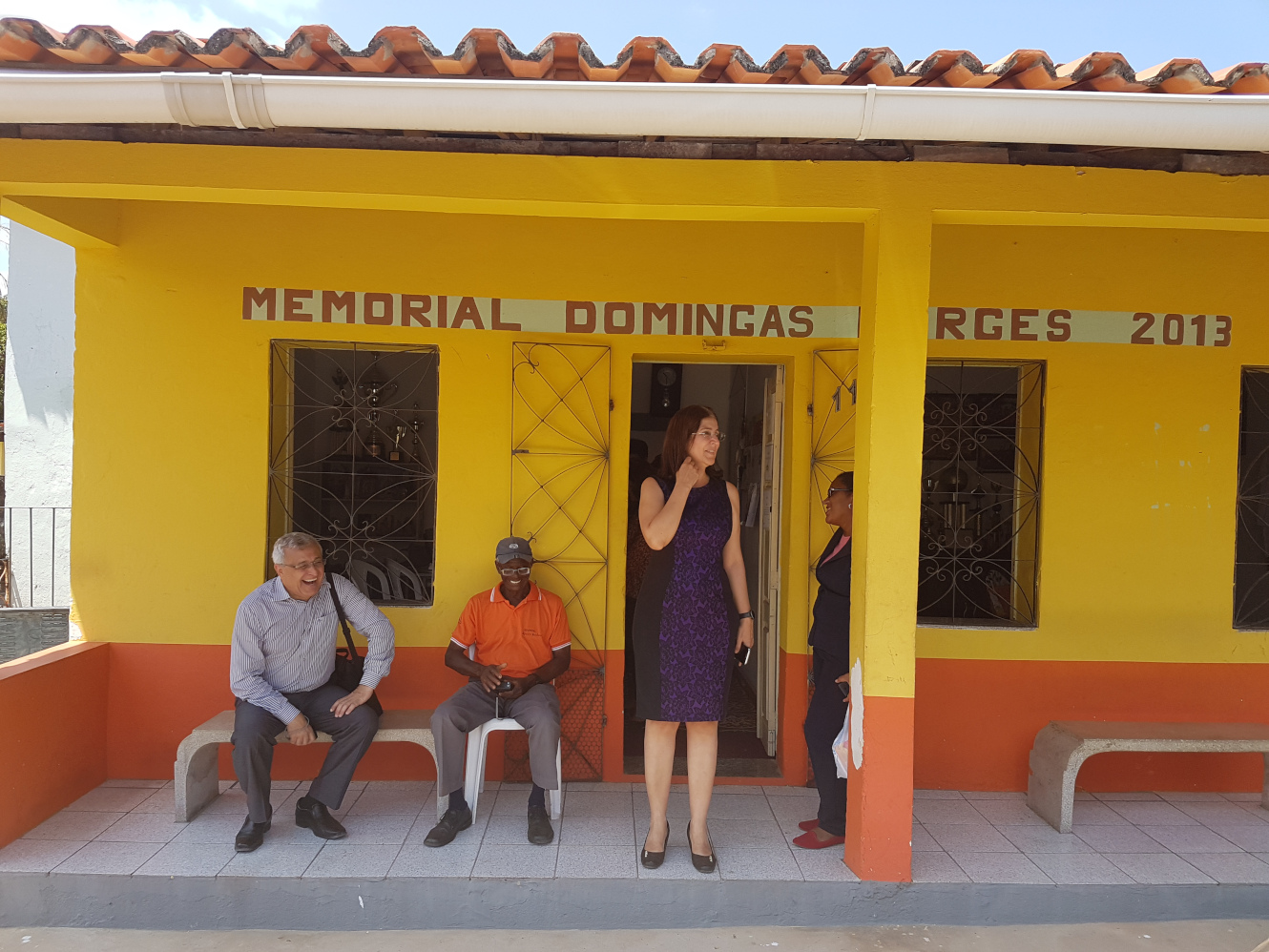
UNIVERSIDADE FEDERAL DO MARANHÃO
The Universidade Federal do Maranhão has among its learning settings the “Colônia do Bom Fim” – where an old leprosarium was once housed – with a rich appreciation for the history of medicine.
Library

UNIVERSIDADE POSITIVO– UP
The medical school of the Universidade Positivo has a central library with a computerized collection. It has excellent infrastructure and exemplary conditions of organization and use of space. The library is also used as a place for cultural events. Other features of the library include baskets for carrying personal effects, reservation services, lockers, and a cafeteria.
Use of Innovative technology

CENTRO UNIVERSITÁRIO DE ANÁPOLIS - UNIEVANGÉLICA
The Unievangélica features an accessibility program fully integrated with its research and development cycle, ensuring that its tools are standardized and that students can navigate easily and understand the use of assistive technologies and devices that meet their needs. One example is the use of QR code for students’ access to teacher-recorded lessons on their mobile devices.
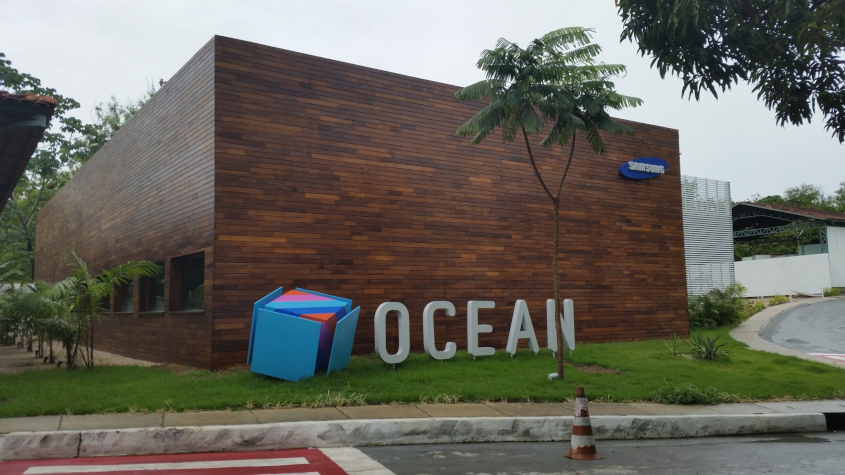
UNIVERSIDADE DO ESTADO DO AMAZONAS
The medical school has excellent teaching tools in the “Ocean," a space in the university created in partnership with Samsung, where students develop technologies to meet course demands such as applications and games.
Educational Environment
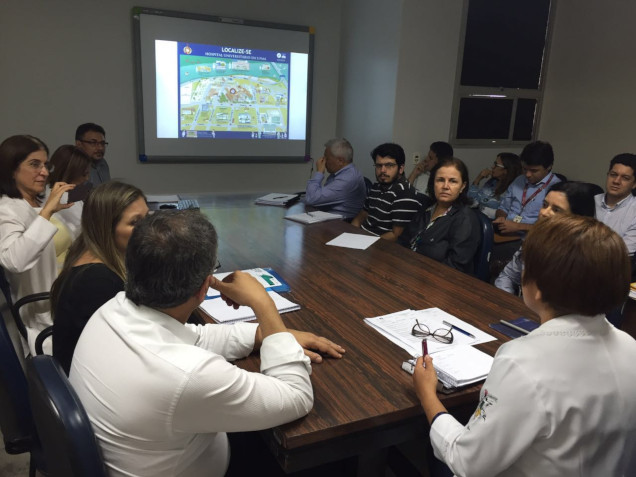
UNIVERSIDADE FEDERAL DO MARANHÃO
The medical school of the Universidade Federal do Maranhão has a teaching hospital linked to the public health system which allows the student to monitor referral and counter-referral of patients. Its teaching conditions are excellent with spaces reserved for undergraduate and graduate studies, as well as access to telemedicine support.
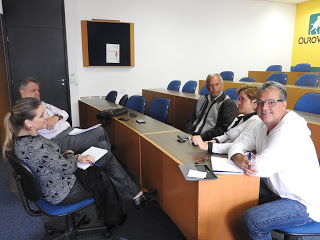
UNIVERSIDADE POSITIVO
The educational environment of the Universidade Positivo is totally based on a culture of humanization shared and experienced by the social body of the institution and recognized by service professionals and patients, as exemplified in the relationships, the respect, the non-discriminating environment, and the commitment to the quality of training.

